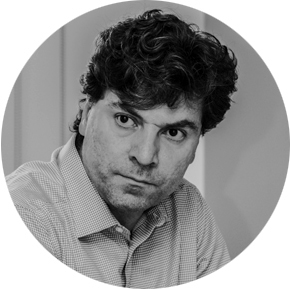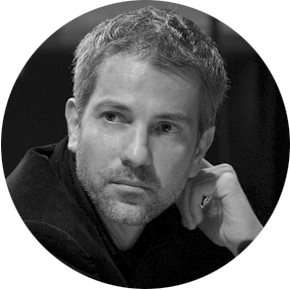Mediamax continues a series of interviews with the intellectuals of Armenia and the Diaspora. It is an attempt to collect opinions as to whether the Armenian Genocide Centennial will serve a certain “New Beginning” for Armenians.
Our today’s interlocutor is journalist and writer Vicken Chiteryan, who published his “Open Wounds: Armenians, Turks and a Century of Genocide” book a few months ago.
- Which is the main message of your new book?
- The main issue raised in the book is the ignorance and oblivion into which the Armenian Genocide committed during World War I fell in international relations after the Treaty of Lausanne. I wonder if such a massive heinous deed would go unnoticed had it been committed in Europe. But the policy aimed at ignoring the Genocide cannot erase the traces of that crime. I tried to develop the book following in those tracks in an attempt to find out what impact and influence the Genocide has 100 years later.
- Can the Centenary be a reason for us to reinterpret the past and cast a new look at the future?
- I think we should firstly assess the various phases that proceeded over the 100 years. Apparently, in the 1920s, i.e. only a few years after the Genocide, we couldn’t struggle in the way we did in the 1960s.
I believe we attained a certain result in the past 10 years. The most important is perhaps the fact that until the 1980s Genocide was being perceived as an issue that concerned only Armenians. Later, various circles arrived at the conviction that the Genocide is not just about the Armenian pain but that it extends beyond that, shaping issues that represent concern and interest for them. Importantly, many people in Turkey also started overtly speaking of the Armenian Genocide.
Of course, it’s not enough. We should persist with our struggle for the Armenian Genocide to be recognized as a crime against the entire humanity.
- Some people think that after the centenary the Armenian Genocide will no longer be a pivotal issue for the Armenian Diaspora.
- I don’t think so. This struggle won’t end in 2015 – Turkey won’t acknowledge the Armenian Genocide in the foreseeable future. But we should give a new meaning to our struggle to continue it in a productive way; we cannot go on with the old ideas. We should link our struggle to current international reality and values.
- How would you frame that new meaning?
- We should show that it’s a global issue. When speaking of the Armenian Genocide we should not focus on only the pain Armenians went through. We incurred that pain 100 years ago but such crimes, including massacres and displacements, happen in the Middle East today.
We are the nation that should make people around the world understand that had the crime committed a century ago received a relevant response, we would see way less violence and mass killings in the 20th and 21st centuries.
We should also draw global attention to the fact that all the regimes that committed genocides were defeated in the end – Turks were defeated in the World War, Hitler lost the war, Stalin regime collapsed and the Hutu regime in Rwanda was overthrown.
It happened because the crime of genocide does not resolve issues – it distorts them moving from the political to other levels.
- Is the Armenian Genocide Centennial a good reason to reassess Armenia and Diaspora ties?
- There is lack of dialog between Armenia and the Diaspora. Many steps are taken but they are just formal measures and nothing more. Armenia should be capable of lending an ear to the Diaspora.
The Diaspora is quite a rich phenomenon with its diversity, but Armenia should be able to listen and understand it to comprehend that wealth and take advantage of it.
- What would you recommend to do to establish a real dialog?
- Armenia should develop a political culture to enable that dialog. Today’s centralized and oligarchic system cannot engage the greater potential of Armenia and Diaspora.
- How real is Diaspora’s assimilation risk given the current globalization?
- The Diaspora has passed through huge demographic changes in the past 20-30 years. Globalization affects the Diaspora from the “outside,” but the internal organic structure has also completely transformed.
Previously the most important and powerful Diaspora communities were located in the Middle East, but today they have lost their former influence. The Armenian community in Syria is, in fact, dissapering. As of today, the Diaspora communities in Russia, France and the U.S. are the strongest. The next change is that the majority of Armenian Diaspora representatives do not speak Armenian. Add to this globalization, and the issues Armenia and Artsakh face.
In the past 20-30 years we have not paid proper attention to the preservation of the Armenian Diaspora. The Diaspora might “disperse” and get lost if we don’t preserve it. The establishment of new structures that will enable to link the Armenian identity to current issues might be one way to preserve it.
We still rely on structures that date back to the 1950s and 1960s – these structures bear no meaning for the new generation. The boundary between Armenian and Diaspora residents is no longer important – an Armenian resident can easily become a Diaspora resident and vice versa. We should comprehend the importance Diaspora bears for us and should reshape and care for its structures – newspapers, schools, and clubs. We should establish new and high-quality structures for the Armenian identity to live on in various Armenian communities.
- Lack of formulation of future for Armenia and the Diaspora – don’t you think it’s one of the main issues? What future do we anticipate for the Armenian people? What will we be doing in that future? Will we create new values or will we stick to the powerful cultural values created in the past?
- The formulation of the future cannot be the fruit of the thought of several intellectuals or officials; it can be formed only as a result of a social movement. In the past 10 years, I have observed such social movements or initiatives in Armenia, which this or that way take part in serious discussions aimed at building a better future.
As to the second part of the question, in reality we know very little about the culture of our past. It refers to both Armenia and the Diaspora. The Soviet system and Stalinism were trying to sever our connection to the past. The Diaspora faced a different issue – the Genocide issue, which dominated there, used to disconnect us from what we had prior to 1915.
Sometimes we perceive our culture in a form of folklore, while in reality it carries a powerful civilizational value. One of the reasons for the Genocide was that we had a way more developed culture than the Ottoman system could tolerate. The same might refer to the state and political scene. Armenian’s national Constitution had been created 25 years before that of the Ottoman Empire. Armenian political parties existed in a time where there were no Ottoman parties.
We indeed have a rich culture from which we should draw historic lessons and get inspiration. We should importantly reconnect to our past.
Ara Tadevosyan talked to Vicken Chiteryan
Also read:
Aram Mehabyan’s interview
Ronald Suny’s interview
Fr. Mesrop Aramian’s interview
Mark Grigoryan’s interview
Ralph Yirikian’s interview
Avetik Chalabyan’s interview
Ruben Vardanyan’s interview
Razmik Panossian’s interview
Gerard Libaridian’s interview





















